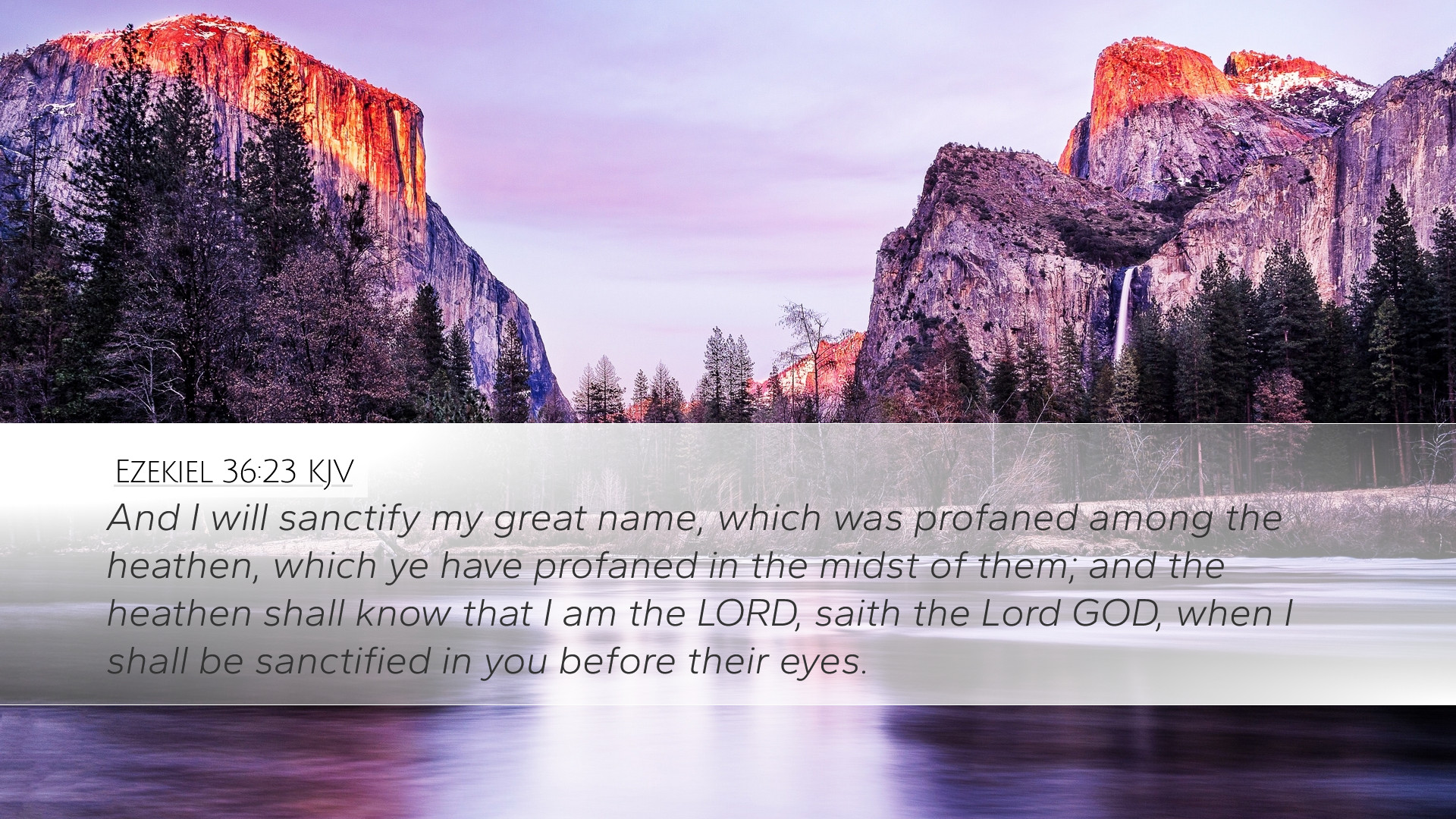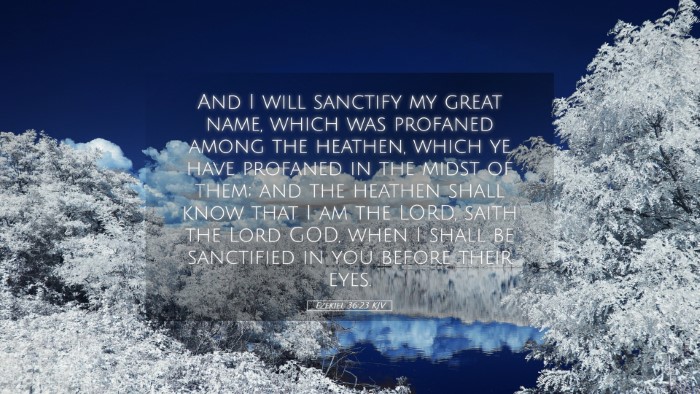Bible Commentary on Ezekiel 36:23
Ezekiel 36:23 (NIV): "I will show the holiness of my great name, which has been profaned among the nations, the name you have profaned among them. Then the nations will know that I am the LORD, declares the Sovereign LORD, when I am proved holy through you before their eyes."
Introduction
This pivotal verse in Ezekiel emphasizes God's intention to sanctify His name amidst the nations through the restoration of Israel. The context encompasses God's relationship with His people, their transgressions, and His redemptive purpose. The reflections gathered from public domain commentaries illuminate the theological depth and implications of this passage.
Theological Insights
1. The Holiness of God's Name
Matthew Henry emphasizes that God’s holiness is intrinsic to His character. His name represents His nature and His attributes. When God speaks of showing the holiness of His name, it signifies His commitment to revealing His glory and righteousness, especially in the context of Israel’s failure. This act of vindicating His name serves both His covenant people and the surrounding nations.
Albert Barnes notes that God's reputation was at stake due to Israel's unfaithfulness. By restoring Israel, God aims to demonstrate His covenant faithfulness, which, in turn, brings glory to His name. The act of restoration is thus not merely about Israel but showcases God's overarching sovereignty and holiness.
2. Profaning the Name
Adam Clarke offers insights into the phrase "which has been profaned among the nations." He explains that Israel's sin led to a misrepresentation of God’s character. The nations observed Israel's unfaithfulness and assumed that their God was powerless or indifferent. Clarke's commentary draws attention to the serious implications of sin as it reflects on God’s nature.
Henry further expands this idea, warning that the failure of God’s people to live in accordance with His laws not only tarnishes their witness but also brings reproach to God's name among the Gentiles. This collective failure emphasizes the corporate responsibility of God's people.
3. Restoration and Renewal
The promise of restoration offered in this text is a profound element of hope. Barnes explains that the restoration of Israel is not just a physical return but a spiritual renewal. God will cleanse and sanctify His people, enabling them to live righteously before Him. This transformation is necessary for demonstrating God's holiness to the nations.
Clarke adds that the renewal is an act of grace and mercy, emphasizing that it is not by their works that they will be restored, but by God’s own sovereign act. This points to the future fulfillment in Christ, where true holiness and righteousness are ultimately realized.
Implications for the Nations
1. Witness to the Nations
The phrase "Then the nations will know that I am the LORD" underscores the missional aspect of God’s restorative plan. Henry remarks that the restoration of Israel serves as a divine witness to the world. The transformation of His people will lead to a recognition of God’s sovereignty and holiness.
Barnes adds that this demonstrates God's universal plan—His glory extends beyond Israel to encompass all nations, showcasing His desire for redemption and relationship with every people group.
2. The Sovereign LORD
In this verse, God declares Himself as "the Sovereign LORD.” Albert Barnes interprets this as a significant declaration of God’s authority and control over all creation. It serves as a reminder that despite Israel's unfaithfulness, God remains in control, actively working toward His redemptive purposes.
Clarke emphasizes the importance of recognizing God's sovereignty in our lives today. He reminds us that awareness of God’s sovereign nature should inspire confidence and obedience in our faith walk.
Conclusion
Ezekiel 36:23 encapsulates key themes of restoration, the sanctity of God’s name, and the mission to the nations. The insights drawn from the works of Henry, Barnes, and Clarke illuminate both the historical context of Israel and the present-day application for believers. The holiness of God and His commitment to His people is a central tenet of our faith, challenging us to live in a manner that reflects His nature and bears witness to the world.
As pastors, students, theologians, and scholars engage with this passage, may they be encouraged to consider the weight of their witness to God’s holiness and the transformative power of His restorative work.


